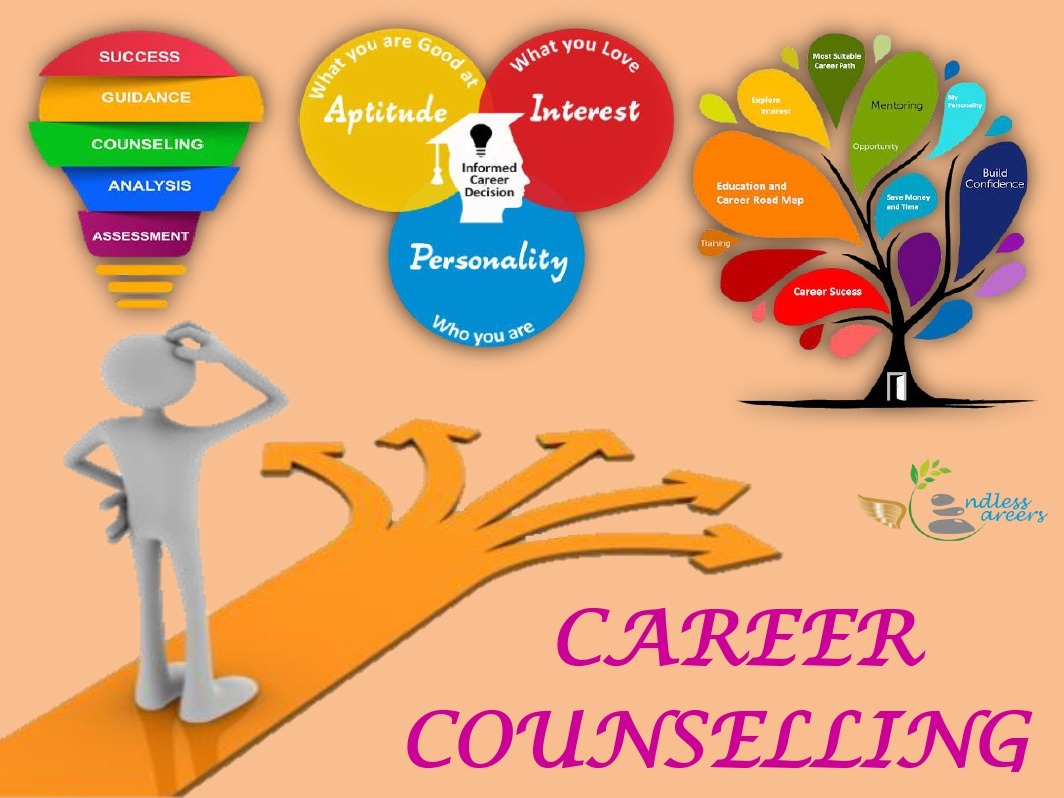Introduction
In today’s rapidly changing and competitive world, navigating the landscape of career choices can be daunting. Many individuals are at a crossroads, unsure of which path to take or how to achieve their professional aspirations. This is where career counseling and guidance come into play, offering invaluable support and direction to individuals seeking clarity and success in their careers.
Defining Career Counseling and Guidance
Career counseling and guidance encompass a range of services to assist individuals in making informed decisions about their career paths. This includes providing resources, assessments, and personalized advice to help individuals explore their interests, skills, and values, and align them with suitable career options.
Importance of Career Planning
Effective career planning is essential for long-term success and fulfillment in one’s professional life. By setting clear goals and developing a strategic roadmap, individuals can make deliberate choices that lead to meaningful and rewarding careers. Career counseling helps individuals navigate this process by offering guidance and support at every stage of their journey.
Understanding Yourself
Self-awareness is the foundation of effective career planning. Through self-assessment and reflection, individuals can gain insights into their strengths, weaknesses, interests, and values, critical factors in making informed career decisions.
Self-Assessment and Reflection
Taking the time to introspect and evaluate oneself is the first step toward understanding one’s career preferences and aspirations. This involves reflecting on past experiences, identifying personal strengths and areas for improvement, and recognizing patterns of interest and motivation.
Identifying Strengths and Weaknesses
Knowing your strengths allows you to capitalize on your unique abilities and talents while acknowledging your weaknesses, which helps you identify areas for growth and development. Career counseling can help individuals conduct comprehensive assessments to clarify their strengths and weaknesses.
Clarifying Values and Interests
Understanding your values and interests is essential for finding a career that aligns with your passions and principles. Career counselors can facilitate exercises and discussions to help individuals clarify their core values and identify areas of genuine interest and motivation.
Exploring Career Options
Once individuals have better understood themselves, the next step is to explore the myriad career options available. This involves researching different industries and professions, understanding job market trends, and considering non-traditional career paths.
Researching Different Industries and Professions
Thorough research is crucial for gaining insights into various industries, including their growth prospects, job opportunities, and workplace cultures. Career counselors can provide resources and guidance to help individuals gather relevant information and make informed decisions.
Understanding Job Market Trends
Keeping abreast of current job market trends allows individuals to anticipate future demand and tailor their career plans accordingly. Career counselors can offer insights into emerging industries, in-demand skills, and potential growth areas to help individuals stay ahead of the curve.
Exploring Non-Traditional Career Paths
In addition to conventional career paths, numerous non-traditional avenues, such as freelancing, entrepreneurship, and remote work, are worth exploring. Career counselors can help individuals explore alternative career options and assess their viability based on their preferences and goals.
Setting Goals and Creating a Plan
With a clearer understanding of oneself and available career options, the next step is to set specific goals and develop a strategic plan to achieve them. This involves setting both short-term and long-term objectives, creating actionable steps, and maintaining flexibility in goal setting.
Short-Term and Long-Term Goals
Setting clear and achievable goals gives individuals direction and motivation to pursue their desired career paths. Career counselors can assist individuals in setting SMART (Specific, Measurable, Achievable, Relevant, Time-bound) goals that align with their aspirations and capabilities.
Creating Actionable Steps
Breaking down goals into actionable steps helps individuals turn their aspirations into reality. Career counselors can help individuals identify the tasks and milestones required to progress toward their goals and anticipate potential challenges and obstacles.
Flexibility in Goal Setting
While having a plan in place is important, it’s equally important to remain flexible and adaptable in the face of changing circumstances. Career counselors can help individuals reassess their goals periodically, adjust their plans as needed, and seize new opportunities as they arise.
Developing Skills and Qualifications
Building the necessary skills and qualifications is essential for succeeding in today’s competitive job market. Through education, training, or hands-on experience, individuals must continuously invest in their personal and professional development to stay relevant and competitive.
Identifying Necessary Skills for Desired Career Paths
Different careers require different skill sets, so it’s essential to identify the skills and qualifications needed for your desired career path. Career counselors can help individuals assess their current skill levels, identify skill gaps, and develop strategies for acquiring the necessary competencies.
Pursuing Education and Training Opportunities
Obtaining relevant education and training is often critical to achieving career goals. Whether through formal education programs, certifications, or specialized training courses, career counselors can provide guidance on selecting the most suitable learning opportunities to enhance employability and career prospects.
Gaining Relevant Experience through Internships and Volunteering
Hands-on experience is invaluable for gaining practical skills, expanding professional networks, and demonstrating competence to potential employers. Career counselors can help individuals identify internships, volunteer opportunities, or part-time roles that align with their career interests and goals.
Navigating Challenges
Despite careful planning and preparation, individuals may encounter various challenges and obstacles along their career paths. From overcoming fear of failure to dealing with uncertainty and external pressures, career counseling can provide support and guidance to help individuals navigate these challenges effectively.
Overcoming Fear of Failure
Fear of failure can often paralyze individuals and prevent them from taking risks or pursuing their goals. Career counselors can help individuals reframe their mindset towards failure, cultivate resilience, and develop strategies for managing setbacks and disappointments.
Dealing with Uncertainty
The job market is inherently unpredictable, and individuals may face uncertainty about future career prospects or job stability. Career counselors can help individuals develop coping mechanisms for dealing with uncertainty, such as building a strong support network, staying adaptable, and focusing on areas within control.
Addressing External Pressures and Expectations
External pressures, such as parental expectations or societal norms, can influence individuals’ career choices and cause undue stress and anxiety. Career counselors can provide a safe space for individuals to explore their aspirations and values, separate from external influences, and make decisions that are true to themselves.
Utilizing Resources
In today’s digital age, individuals can access many resources and tools to support their career development efforts. From seeking guidance from career counselors and mentors to leveraging online resources and professional networks, numerous avenues are available to individuals seeking support and guidance.
Seeking Guidance from Career Counselors and Mentors
Career counselors are pivotal in providing personalized guidance and support to individuals at every stage of their career journey. Career counselors can offer insights, advice, and encouragement through one-on-one counseling sessions, group workshops, or online resources to help individuals navigate their career paths effectively.
Leveraging Online Resources and Tools
The internet offers many resources and tools to support career exploration and development. From online career assessments and job search platforms to industry-specific forums and professional networking sites, individuals can leverage digital resources to gather information, connect with peers, and advance their careers.
Networking and Building Professional Relationships
Building and nurturing professional relationships is essential for career advancement and growth. Career counselors can provide guidance on networking strategies, communication skills, and building a strong personal brand to help individuals expand their professional networks and access new opportunities.
Making Informed Decisions
Making informed decisions about one’s career requires careful consideration of various factors, including personal preferences, job market dynamics, and potential risks and rewards. Career counselors can help individuals weigh the pros and cons of different options, consider work-life balance, and evaluate the long-term implications of their decisions.
Weighing Pros and Cons
Evaluating the advantages and disadvantages of different career paths allows individuals to make informed decisions that align with their priorities and goals. Career counselors can help individuals conduct thorough assessments, weigh the pros and cons of various options, and identify the best course of action based on their unique circumstances.
Considering Work-Life Balance
Achieving a healthy work-life balance is essential for overall well-being and career satisfaction. Career counselors can help individuals assess their priorities, set boundaries, and make choices that support their personal and professional goals while maintaining a sense of balance and fulfillment.
Evaluating Potential Risks and Rewards
Every career decision comes with its own set of risks and rewards, and it’s important to carefully evaluate these factors before making a commitment. Career counselors can help individuals assess different options’ potential risks and rewards, anticipate challenges, and develop contingency plans to mitigate potential pitfalls.
Taking Action
Ultimately, achieving career success requires taking proactive steps toward one’s goals. Whether it’s implementing a career plan, adapting to changes and challenges, or celebrating milestones and achievements. Taking action is essential for turning aspirations into reality.
Implementing Your Plan
Putting your career plan into action requires commitment, perseverance, and resilience. Career counselors can help individuals break down their goals into actionable steps, set realistic timelines. Stay accountable to their objectives to make steady progress toward their desired outcomes.
Adapting to Changes and Challenges
Flexibility is key to navigating the twists and turns of a career journey. Career counselors can help individuals adapt to changes and challenges by remaining open-minded, seeking feedback. Adjusting their strategies to stay on course toward their goals.
Celebrating Milestones and Achievements
Recognizing and celebrating progress is essential for maintaining motivation and momentum on the career path. Career counselors can help individuals acknowledge their achievements, no matter how small. Celebrate their successes along the way to fuel their continued growth and development.
Conclusion
In conclusion, career counseling and guidance are vital in helping individuals navigate the complexities of career planning and development. Understanding oneself, exploring career options, setting goals, and taking proactive steps. Individuals can make informed decisions about their careers and achieve greater satisfaction and success in the long run. Whether you’re a student, a mid-career professional, or contemplating a career change. Seeking guidance from a career counselor can provide invaluable support and assistance on your journey toward realizing your full potential.


